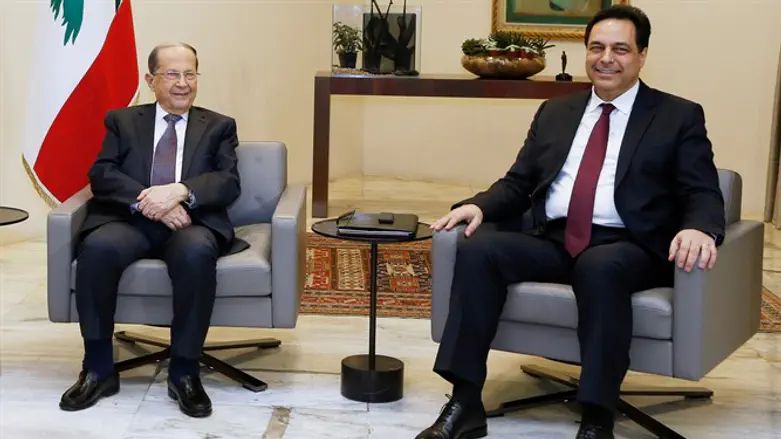
Lebanon’s new Cabinet on Tuesday won a vote of confidence from Parliament despite a day of protests and riots that left nearly 400 people injured, The Associated Press reported.
Prime Minister Hassan Diab’s Cabinet, which is supported by Hezbollah and its allies, won votes from the majority of parliament members present in the 128-member legislature, according to the report.
At the end of the day, Parliament Speaker Nabih Berri said 63 legislators voted in favor, 20 did not give a vote of confidence and one abstained.
Speaking ahead of the vote, Diab said he fully realized the massive task ahead but was confident it was still possible to rescue Lebanon’s economy from complete collapse — and that his government would get to work immediately.
The new Cabinet was announced in late January, breaking a months-long impasse amid ongoing mass protests against the country's ruling elite.
Diab was designated by President Michel Aoun as prime minister in mid-December, and replaces former Prime Minister Saad al-Hariri, who resigned on October 29 following the wave of protests.
The protests in Lebanon were initially started in response to what has become known as the “WhatsApp Tax”, which would have seen a 20-cent daily fee being charged for messaging app users.
The tax was later scrapped but the protests have continued and have morphed into a cross-sectarian street mobilization against a political system seen as corrupt and broken.
On Tuesday, before the vote in Parliament, Lebanese security forces fired tear gas to disperse thousands of protesters near the parliament building in Beirut, according to AP.
Protesters threw stones at security forces and tried to block the lawmakers’ path, delaying the start of the meeting. A group of rioters later set fire to a bank in the downtown area. Nearly 400 people, including a legislator and a journalist, were injured in the riots, some of whom were rushed to a hospital for treatment.
After the vote, Diab urged the international community, and local opponents, to give his government a chance.
“Lebanon is passing through a very difficult and unprecedented time. Overcoming this period peacefully is close to impossible without assistance from abroad, as well as from the inside,” he said.
The parliament session began with Diab reading the 16-page government statement on a rescue plan to get Lebanon out of its economic and financial crisis.
The plan includes reforms in the judicial, financial and administrative fields, as well as plans fighting corruption and fixing the country’s finances.
Lebanon has one of the highest debt ratios in the world, standing at more than 150% of GDP and worsening over recent years with no economic growth and high unemployment.
